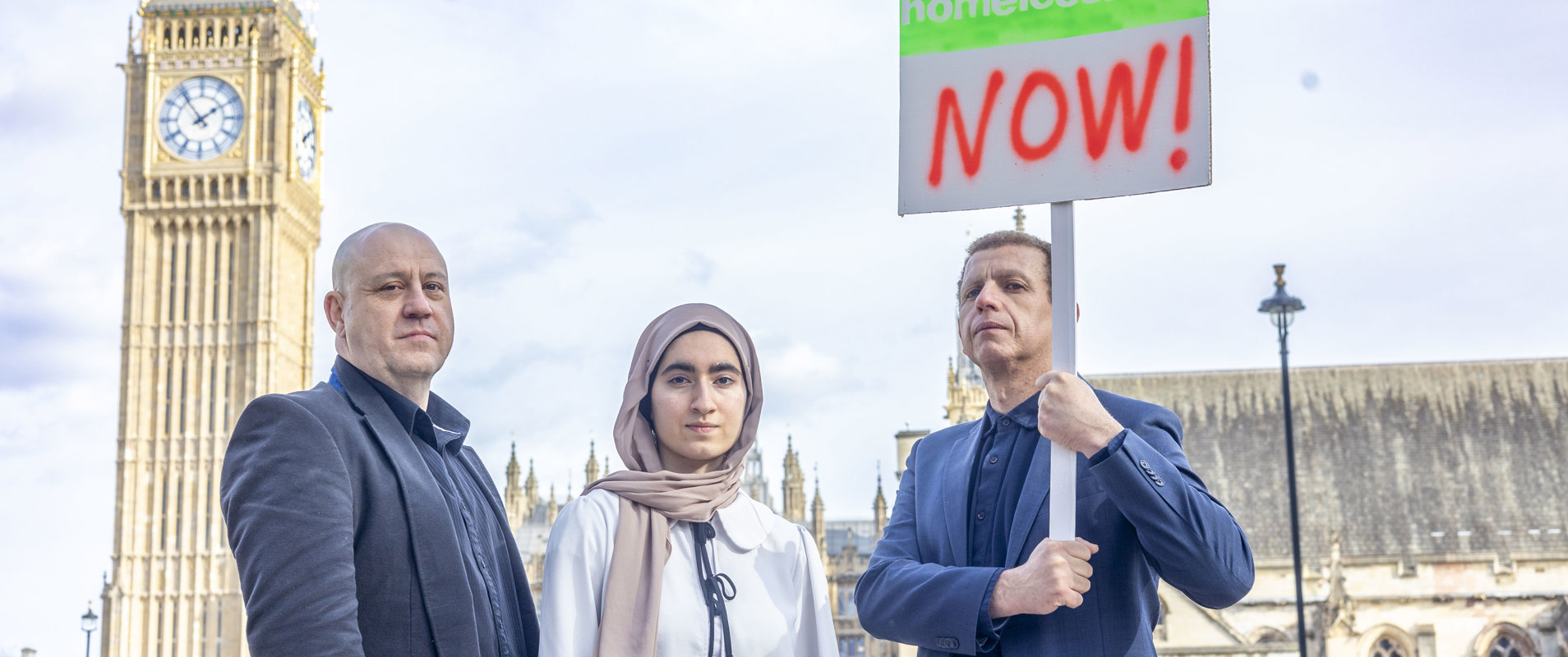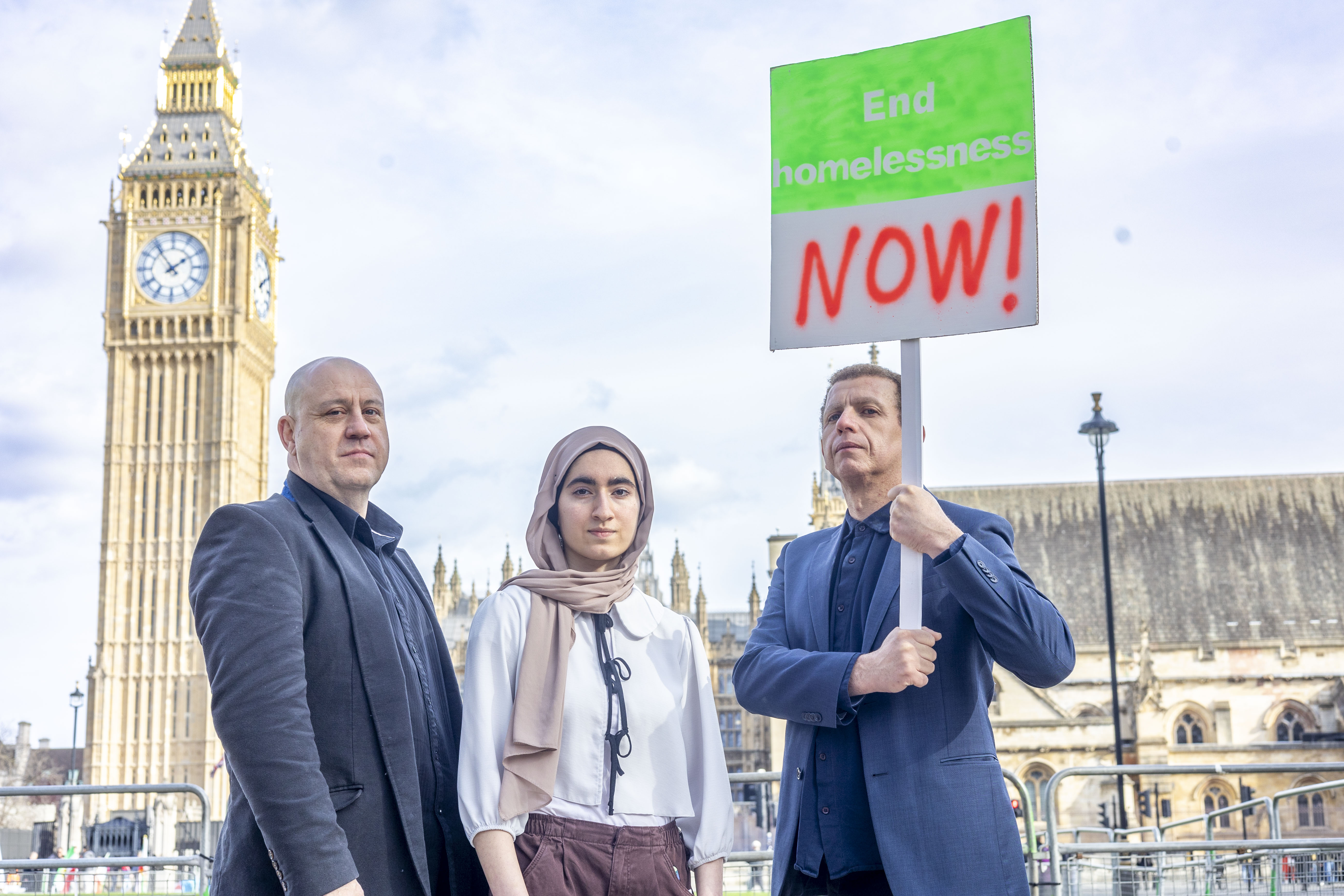
Why the UK Government’s homelessness strategy must prioritise prevention
Last updated: 08.07.2025
The UK Government’s promised homelessness strategy is a once-in-a-generation chance to end it once and for all. And thanks to our campaigning, we’re seeing real progress.

To start to address record homelessness, we urgently need more social homes to provide a strong foundation for the whole country to thrive.
So, it’s encouraging that the UK Government is investing £39 billion in social and affordable housing over the next decade, with at least 60% of the homes built to be for social rent – the most affordable and secure type of housing.
But social homes are only one part of the recipe for ending homelessness. We also need to fix the systems that are meant to prevent it from happening at all
Why prevention is critical – and what's not working right now
Homelessness isn’t inevitable. None of us should be pushed into it by pressures such as job loss, ill health and rising rents. We should all be supported before we reach that point. This protects us from experiencing the trauma and mental and physical health impacts of homelessness.
But more than 320,000 households in England faced homelessness in 2023/24 – the highest on record. That tells us that the system that should be there to protect us all isn’t working. So how can we fix it?
1. Make sure our laws work to prevent homelessness
Local authorities in England have a legal duty to help people at risk of losing their home within 56 days. This means either helping you to stay in your current home or helping you find a new one.
But after years of funding cuts, many councils are too stretched to fulfil this duty. This means that when people seek support, they're often told to come back when they are ‘actually homeless’ - missing a key opportunity to prevent homelessness.
The UK Government must review our existing laws to make sure they’re working to prevent people’s homelessness in England – and change them if they aren’t.
For example, the law should be changed to give local authorities more time – between 4-6 months – to support people properly to avoid homelessness.
2. Public services need to work together to prevent homelessness
People leaving the care of a public service, such as hospital or prison, are often at a transition point in their lives where they are at high risk of homelessness. But services across England aren’t joined up enough, making getting support too complicated and missing opportunities to support people.
For example, at least 4,200 people were discharged from hospital to into homelessness from 2022-23. That’s unacceptable – and avoidable.
But by making public services, such as the NHS and prisons, play a role in preventing homelessness in England, we can fix this. That means spotting when someone’s at risk – like when they leave hospital or prison – and stepping in before they reach crisis point.
3. Fix the support systems that help us keep our home
Rising rents and low wages produce strong currents that can pull people deeper into poverty and towards homelessness. Our welfare system, such as housing benefits, should work to anchor people and prevent them being pushed into homelessness.
But across Britain, cuts to housing benefits mean many of us are struggling to afford our rent and keep our homes. Many renters that rely on housing benefit are being left hundreds of pounds a month short, forcing people to make impossible choices between heating their home or paying their rent.
The UK Government must restore housing benefit to match the real cost of rent. This would mean thousands more people across Britain keep their homes and avoid the trauma and distress of homelessness.
So, how will we do this?
Opportunities to prevent homelessness are being missed every day. But with the Government now developing its new strategy, we have a critical window to make prevention the priority.
We’ll be pushing hard to make sure this strategy includes lasting solutions and that every area of government plays its part. And we’ll be campaigning for the UK Government to restore housing benefit at the autumn budget.
Because no one should be forced into homelessness. Not when the solutions are clear – and not when we have the power to change it.
We’ll need your voice to make this happen. Keep an eye out; we’ll be in touch very soon with ways you can help push the Government to act.

